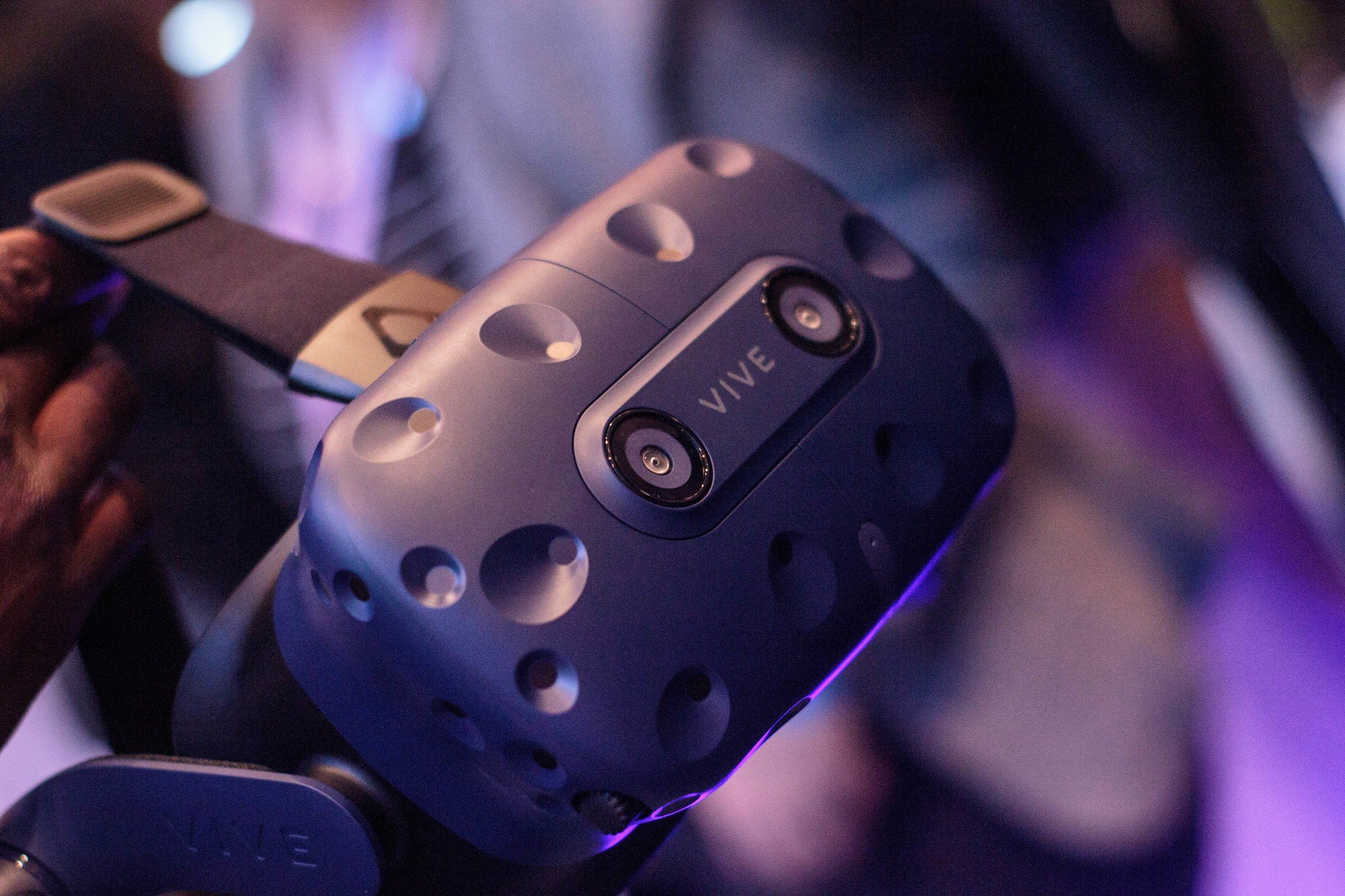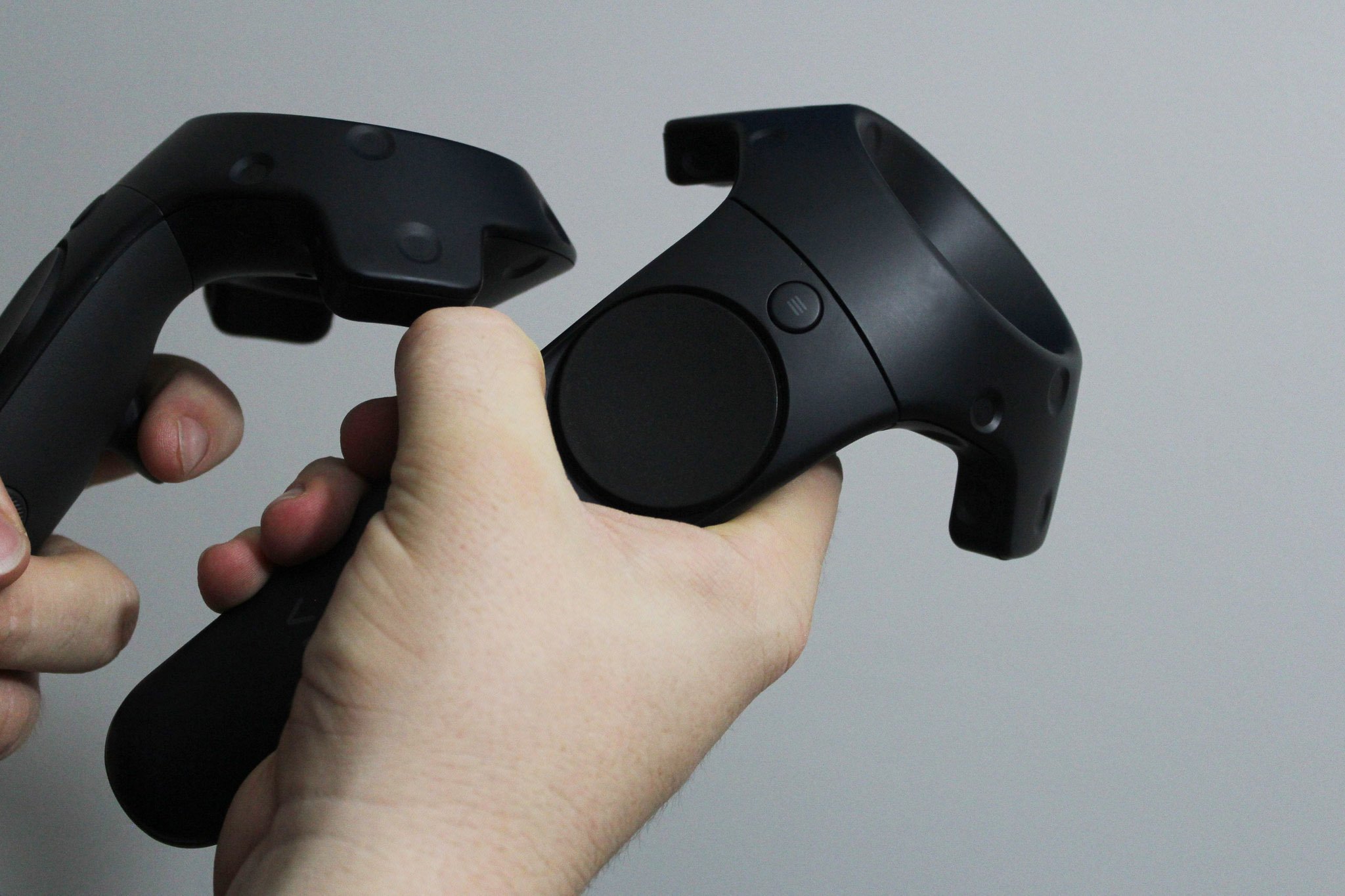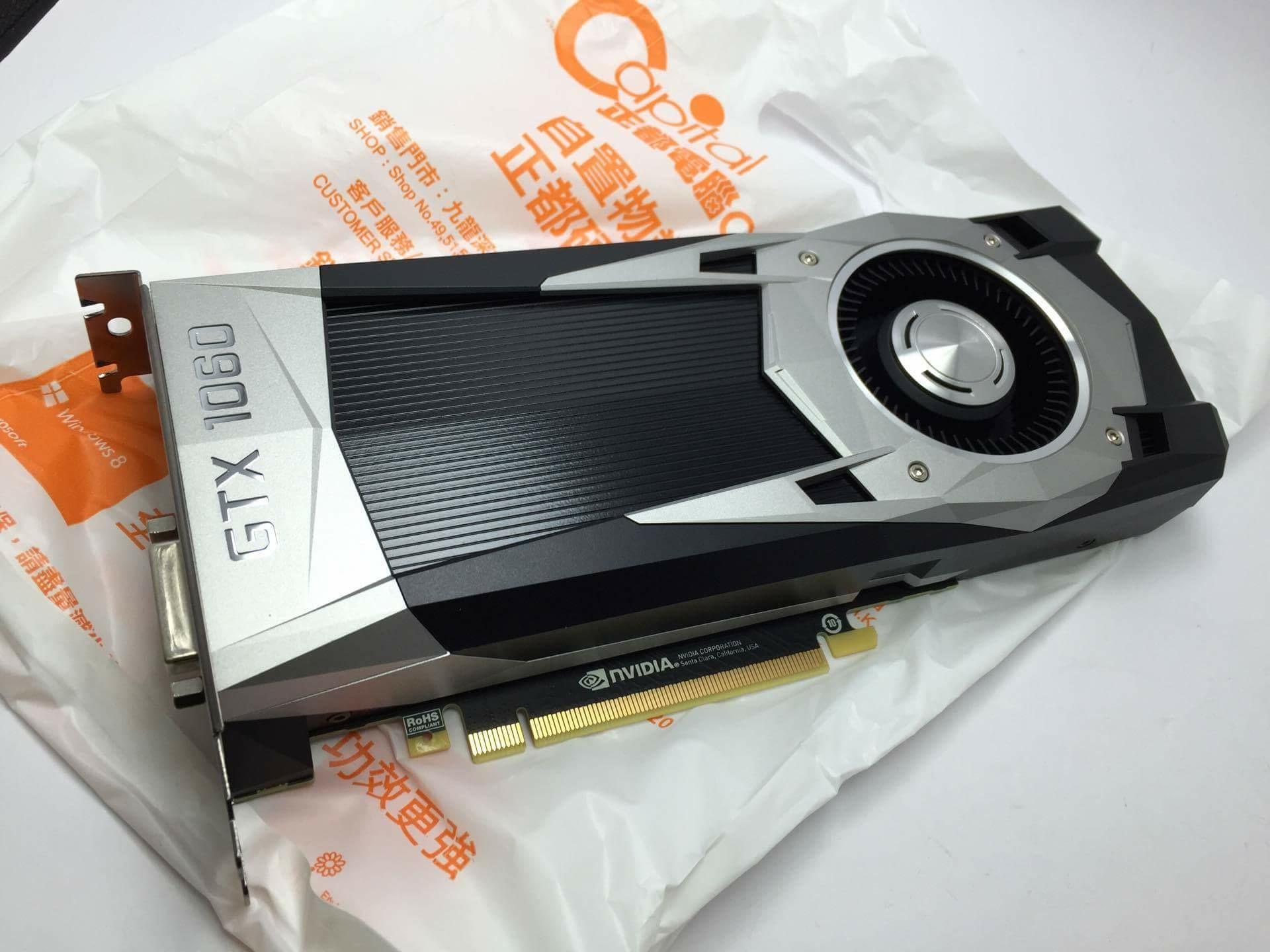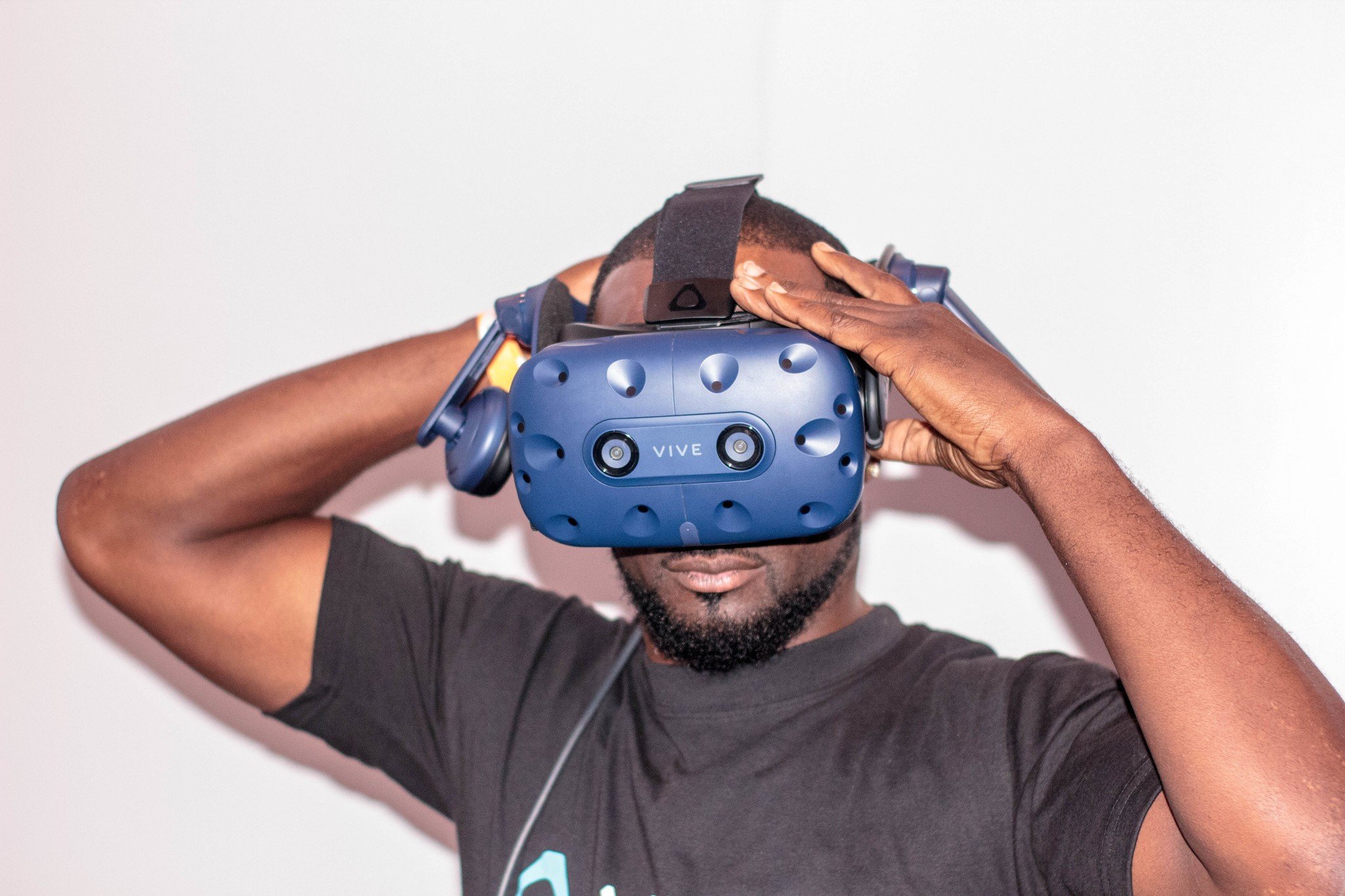
HTC's stellar VR system is getting an upgrade, effectively turning the Vive into a "Pro" version with a redesigned strap system, built-in headphones, and a higher-res display. These upgrades don't come without a significant jump in price as well, which will no doubt cement the Vive Pro's position as more than just an enthusiast's device. Whether you're considering buying one for yourself or a bunch for your team, here's a realistic look at the true cost of the HTC Vive Pro.
See Vive Pro at Microsoft Store
Cost of Vive Pro and accessories

The HTC Vive Pro, expected to be released April 5, 2018 and now available for preorder, costs about $800. This does not include any of the accessories that make it a fully functional system, like the Vive lighthouses and wand motion controllers.
The $800 gets you the head-mounted display (HMD) only, which is aimed at people who already own a classic Vive and its accessories, which are compatible with the Vive Pro.
If you don't already own a Vive and you're looking to buy a Vive Pro and new accessories, you can expect to pay about $130 for each motion controller and about $135 for each lighthouse base station. This brings the total price of accessories to about $530.
Updated April 3, 2018: A Vive Pro Starter Kit was announced today that includes the Vive Pro HMD, two original motion controllers, and two original lighthouse base stations. This kit costs about $1,100 and is available at the Vive website. If you buy this kit rather than buying everything separately, you'll save about $200.
All the latest news, reviews, and guides for Windows and Xbox diehards.
Cost of PC or laptop

The HTC Vive Pro's upgraded hardware means that the PC it's attached to also needs to be bigger and better. The recommended PC specs as found on the Vive website are:
- Processor: Intel Core i5-4590 or AMD FX 8350 (equivalent or better)
- Graphics: NVIDIA GeForce GTX 1060 or AMD Radeon RX 480 (equivalent or better)
- Memory: 4GB RAM (or more)
- Video out: DisplayPort 1.2 (or newer)
- USB: One USB-A 3.0 (or newer)
The biggest cost here is the graphics card (GPU), and because we're in the middle of a crypto-mining bubble, prices are unrealistically inflated.
If you're buying a new pre-built desktop PC, you should expect to pay at least $1,000 for something with a GTX 1060 inside. Big manufacturers usually get deals on GPUs, helping cut out some of the cost you'll see if you buy a GPU separately.
See the best pre-built desktop PCs for VR
For anyone looking to buy a new gaming laptop to run the HTC Vive Pro, you can again expect to pay somewhere around $1,000, though prices elevate much faster than with a desktop PC. For something with a bit of future-proofing, you can expect to pay as much as $2,000 or higher.
Already have a PC but just want to upgrade the GPU inside? You can no doubt find a 6GB GTX 1060 for somewhere around $400, while an 8GB Radeon RX 580 can be had for about the same amount.
Total cost of the HTC Vive Pro

There a few different scenarios we can look at to determine the total cost of an HTC Vive Pro other than the HMD cost of $800.
If you don't have a suitable gaming PC and don't have the classic Vive accessories, you're looking at about $1,100 for the Vive Pro, motion controllers, and lighthouses, plus you'll have to add on at least another $1,000 for a suitable pre-built PC or laptop. That's a total cost of about $2,300 when it's all said and done.
If you just need to upgrade the GPU in your PC, you can no doubt cut the total cost down to somewhere in the region of $1,700, but that's still a big chunk of money. You might be better to wait and see what the Vive Pro bundle costs, including new lighthouses and motion controllers — still no word on when we can expect a release date or official price.
See Vive Pro at Microsoft Store
More resources

Cale Hunt brings to Windows Central more than nine years of experience writing about laptops, PCs, accessories, games, and beyond. If it runs Windows or in some way complements the hardware, there’s a good chance he knows about it, has written about it, or is already busy testing it.
